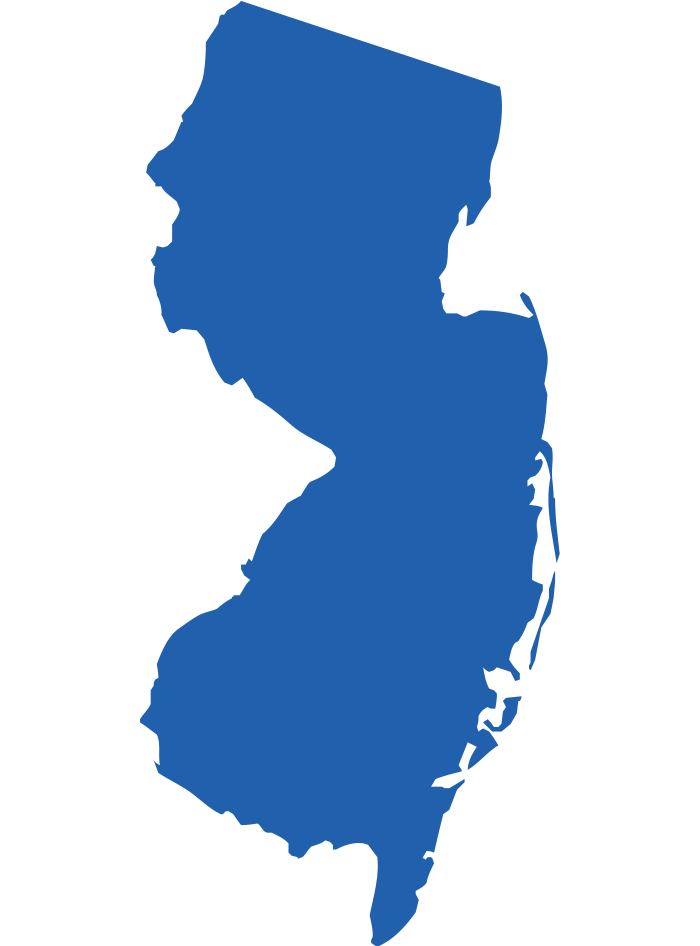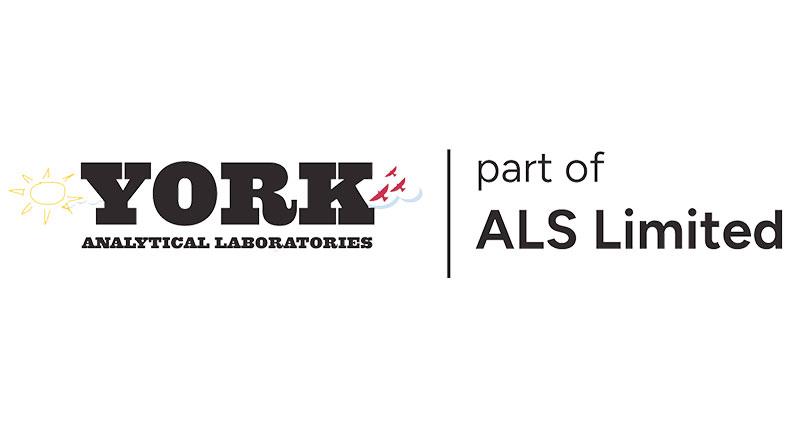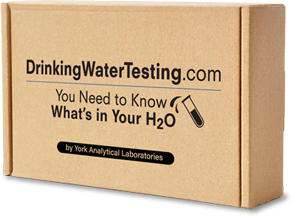New Jersey Water Testing Kits
Private Drinking Water Tests
We offer fast, expert private drinking water tests for New Jersey residents with drinking water from any source: well water, municipal or utility water systems. Our drinking water test kits offer basic to comprehensive test for all major contaminants.
New Jersey residents should not take for granted that they have safe, quality water. The state ranks #6 in the list of the Top 10 states with the worst public tap water in the U.S.
Our laboratory in Toms River is the largest NJDEP-certified laboratory in New Jersey specializing in drinking water testing, and a leader in testing for the dangerous contaminant PFAS, known as “forever chemicals.”
To ensure the utmost accuracy of results, the sample water test kits should be returned to our laboratory within 24 hours of collecting your drinking samples.
Testing ordered through this page is for informational purposes only. Should you need to conduct drinking water tests required for NJ state regulatory compliance, please go to the following pages:
Click for tests for Real Estate Transfers, Rentals, and new Well Installations
Click for tests for Schools & Child Care Centers; Pools & Spas; Municipalities & Community Water Systems.

New Jersey Water Test Kit: Choose Self-Sampling or In-Home Service
The Essentials Kit price is for self-sampling.
- We send you the Testing Kit, you carefully review the instructions, and then you follow the preparation and sampling instructions to collect the water samples. You do have the option to pick up your test kit at our Toms River, NJ laboratory.
- Then, you complete the Residential Sampling Form to include, re-pack the test kit with the samples, and send back to our laboratory with the postage-paid shipping label.
- Click here to see the Water Sample Instructions, a complete overview from the time you receive the kit to how to collect samples for each test.
In-Home Delivery & Sampling Service is available.
- You schedule an appointment, and a member of our client service team visits your location to collect the water samples.
- The In-Home service fee varies by location:
$125: Central Jersey counties
Mercer, Middlesex, Monmouth, Ocean
$250: North Jersey counties
Sussex, Warren, Passaic, Bergen, Morris, Essex, Union, Hunterdon, Hudson, Somerset
$250 South Jersey counties
Burlington, Camden, Gloucester, Salem, Cumberland, Atlantic, Cape May
Know What’s in your H20
Water Supply Contamination
The very foundation of life itself, clean water, faces a growing threat. The nation’s aquifers and groundwaters have increasingly been found to contain toxic compounds such as bacteria, heavy metals (e.g., lead), nitrates from pesticides, disinfectant products, and PFAS from manufacturing / industrial processes.
New Jersey has the 2nd highest rate of PFAS contamination in drinking water in the country. Never assume you have quality and safe drinking water from public and private water suppliers.
What is PFAS?
PFAS stands for per- and polyfluoroalkyl substances, widely known as “forever chemicals.” They are a large group of man-made chemicals that have been widely used since the 1940s in industries and everyday consumer products such as: non-stick cookware, water-repellent clothing, stain-resistant fabrics, cosmetics, firefighting foams, and more. PFAS don’t readily break down in the environment or our bodies, which can lead to long-term accumulation and health risks.
Risks of PFAS in Drinking Water
All contaminants pose significant public health threats, PFAS in particular because of its widespread presence and treatment challenges. In New Jersey, PFAS can be commonly found in groundwater near airports and military bases (from firefighter foam run-off), manufacturing and industrial facilities, and large farms.
The health issues that can result from PFAS include increased risk of cancers (e.g., prostate, kidney and testicular cancers); kidney and liver disease; thyroid problems; decreased fertility; high blood pressure in pregnant women; developmental effects in children; and higher cholesterol levels.
You Need to Know!
Consumers can take several steps to protect their health from drinking water contamination.
1. Know your drinking water source: Find out if you rely on public water or a private well and research any known contamination issues in your area.
2. Test your drinking water: Ensure your water is safe by having it tested for known contaminants.
3. Get your water treated if tests reveal presence of harmful contaminants! Consult with water treatment professionals on appropriate water purification and filtration solutions for your needs.






